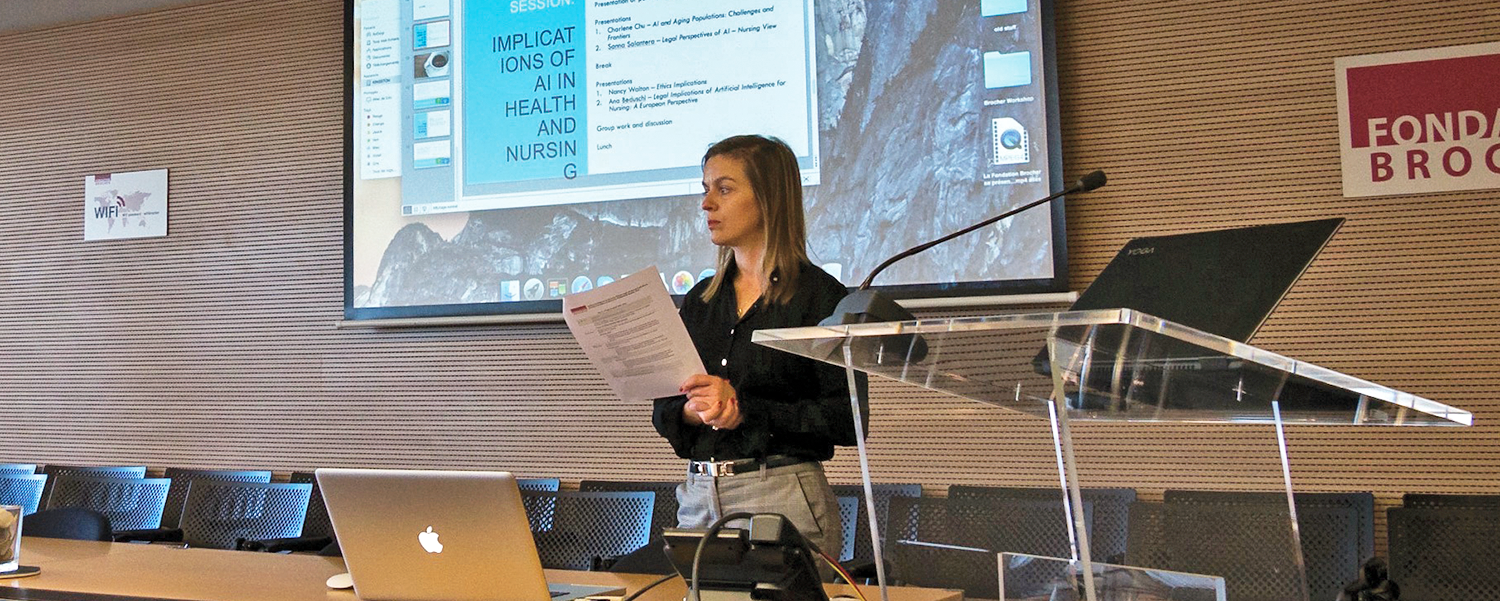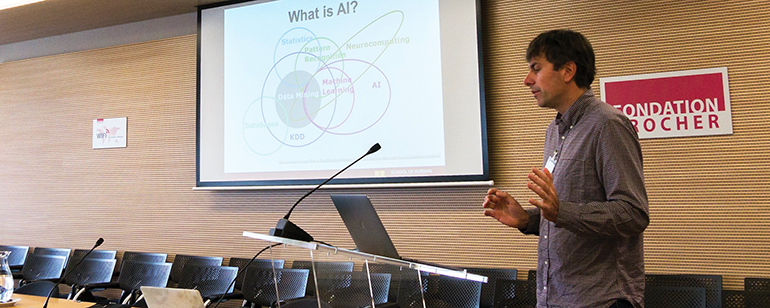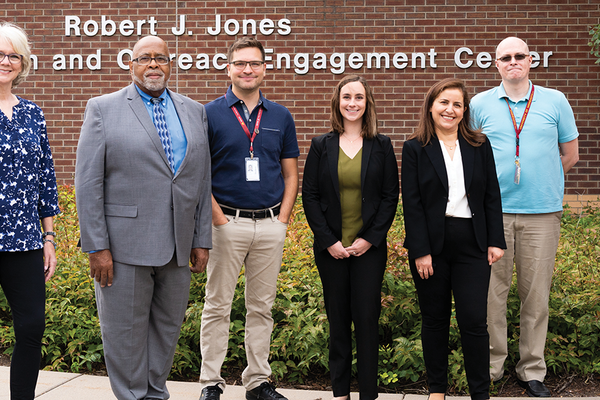The growing importance of AI in nursing
International invitational workshop develops blueprint for nursing to take a leadership role in shaping artificial intelligence use in health systems
November 3, 2021
Brett Stursa

Lisiane Pruinelli, PhD, RN, FAMIA
Recognizing the growing importance of artificial intelligence (AI) in nursing, the International Medical Informatics Association Students and Emerging Professionals Special Interest Group organized an international invitational workshop of the Nursing and Artificial Intelligence Leadership Collaborative (NAIL), Artificial intelligence in nursing: social, ethical and legal implications.
The three-day think tank held and sponsored by the Brocher Foundation in Hermance, Switzerland included 20 interdisciplinary experts from Canada, Finland, Switzerland, the United States and the United Kingdom.
“We decided to put this together because we saw the need to accelerate nursing’s leadership around AI in health systems,” says School of Nursing Assistant Professor Lisiane Pruinelli, PhD, RN, FAMIA, a member of the core organizing group whose expertise is innovative nursing informatics tools and cutting-edge data science methods.
The workshop brought together academic researchers, health educators, health practitioners and representatives from international health, informatics and nursing organizations to explore the ethical, legal, and social implications of AI for nursing. Three areas of focus were the potential of AI advances in nursing, nursing competencies required to work with AI systems to provide safe and high quality care to patients, and technology requirements for seamless practice integration.
Assistant Professor Martin Michalowski, PhD, FAMIA, was one of the key experts in AI invited to the workshop. Michalowski says AI in health is in its infancy, arguing nursing has a responsibility to respond to the call to action.
“This isn’t a trend,” says Assistant Professor Martin Michalowski, PhD, FAMIA. “This is a fundamental paradigm shift in how nurses do their job.”
AI and patient outcomes
Broadly, AI is any technology that automates decision-making. “Patient outcomes will improve because of technologies that allow people to process so much more information and make better, more informed, and personalized decisions around a patient’s care,” says Michalowski.
AI adds to the decision-making, rather than replacing it. “In the end, the clinician is still the decision-maker,” says Pruinelli.

The three-day workshop focused on pragmatic, actionable approaches so that steps could be taken to address them. Ultimately, the group identified areas for nursing to take a leadership role in shaping AI use in health systems. The three priorities they identified were:
- Nurses must understand the relationship between the data they collect and AI technologies they use
- Nurses need to be meaningfully involved in all stages of AI, from development to implementation
- There is a substantial untapped and an unexplored potential for nursing to contribute to the development of AI technologies for global health and humanitarian efforts.
The findings are discussed in the article Artificial intelligence in nursing: Priorities and opportunities from an international invitational think-tank of the Nursing and Artificial Intelligence Leadership Collaborative, which was published as an open access manuscript in the Journal of Advanced Nursing, May 2021.
“We didn’t expect the impact that we have had internationally,” says Pruinelli. “People are reading about it and are inviting us to speak about what we did. They are using our work as a blueprint of the work that needs to be done. We are further exploring opportunities to expand this work.”
Education is core component
For both Pruinelli and Michalowski, education is a core component of ensuring nurses are shaping AI use in health systems.
Already they have developed doctoral courses in data science, and Pruinelli is editing a book on AI in nursing, with Michalowski writing a chapter. “AI in society as a whole is here, and AI is here in nursing,” says Michalowski. “There is a significant transition already happening, so the question is, is nursing leading it? Or is nursing following how other people believe nursing should make the transition?”
Read more
To read Artificial intelligence in nursing: Priorities and opportunities from an international invitational think-tank of the Nursing and Artificial Intelligence Leadership Collaborative, visit z.umn.edu/ainursing.

